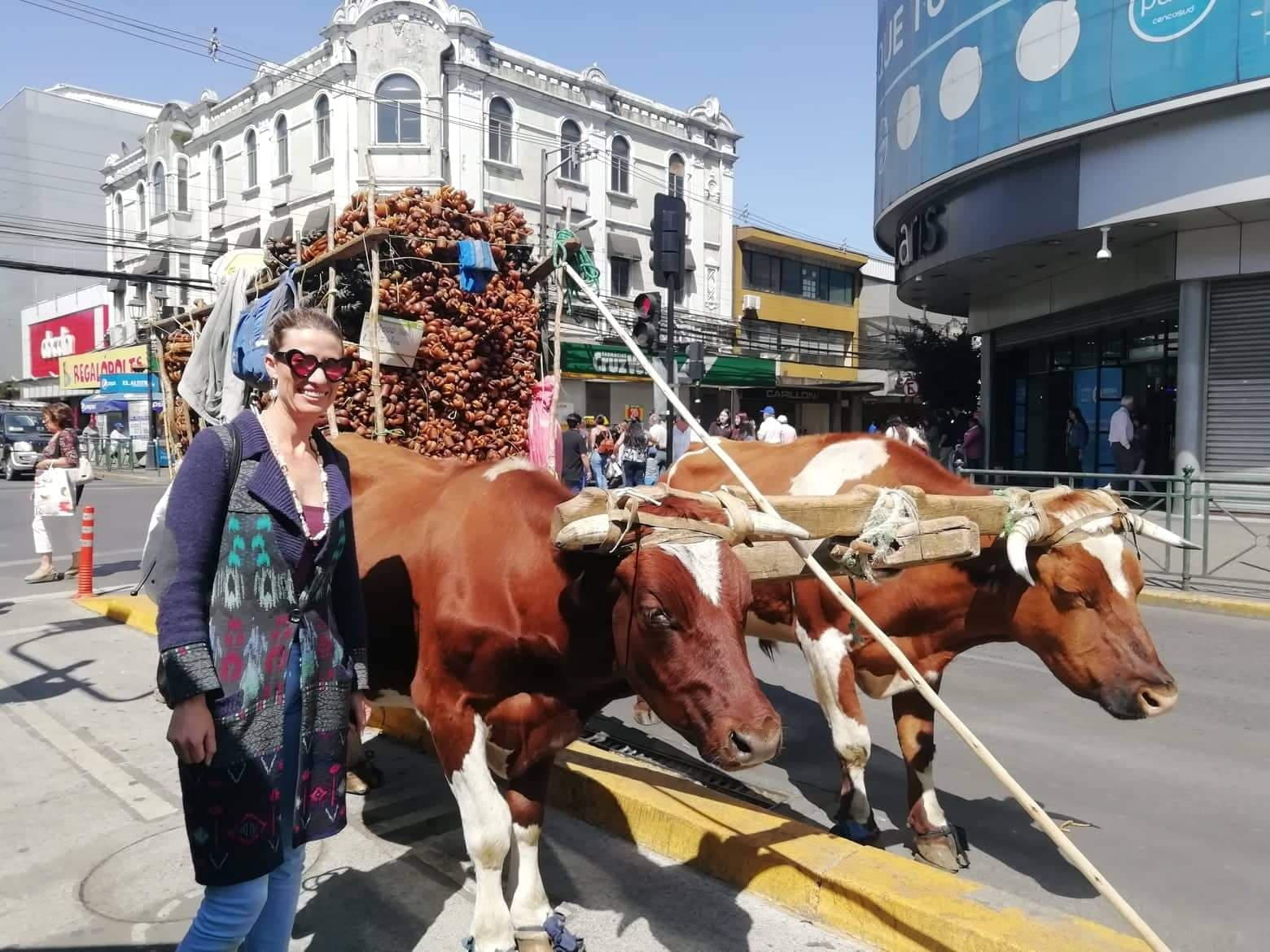“I love documentary because I live for the truth. It’s a form of activism,” says UNE master’s student Lyndsay Urquhart, freshly back from Ficwallmapu – the fifth International Festival of Indigenous Cinema and Arts in Chile, where her latest film was shown.
Since winning a place at the filmmaking training organisation Metro Screen eight years ago, Lyndsay’s activism has helped her uncover many untold stories from remote Aboriginal communities and local stories from the Dharawal community in western Sydney. She’s directed 20 documentaries to date, with two airing on SBS’s National Indigenous Television (NITV). Her latest film, Machi, which premiered at the film festival in Chile, depicts the Chilean Indigenous Mapuche culture.
“I don’t really like the limelight, but I love to teach and empower people to tell their stories. I believe it’s an important healing process. Our people deserve that, at the very minimum,” Lyndsay says.
Storytelling is in her blood.
“My father and grandfather are exceptional storytellers. I watched people of all walks flock to them, share to them and look to them for a good yarn.”
The story for the Chile film festival emerged from a United Nations meeting of Indigenous peoples in 2008, where she met the current Machi, Jorge Quilaqueo, a Chilean spiritual and ceremonial leader to two million people, and they immediately felt an important connection and that their future paths would cross again. As well as recognising a surprising number of cultural parallels, they were even accidentally given each other’s names on their name tags as they entered the meeting.
“We trusted there was a profound reason for us meeting and connecting. I believe it was a decision made for us by our Elders to work together,” Lyndsay says.
Machi aired at the film festival in January, which she attended with the help of some funding and support from UNE and the film was made with funding from an Indigenous Researchers Grant which she received in 2019.
Lyndsay says the audience connected to the message of cultural and environmental protection. The film follows the Machi, the spiritual authority of the Mapuche people, through their traditional lands of the Arucania region, exchanging important lores of creation and ancestral stories bestowed on the Machi and his family.
At the heart of the culture is traditional ceremony, which, like Aboriginal culture, is deeply connected to nature and landscape. Just like in Australia, some of these significant and sacred features of the land are under threat.
Lyndsay and the Machi want the film to raise awareness around current threats to the vitality of ancient indigenous culture and practices, and also to raise funds for collaborative projects seeking to protect the land and culture.
“We had people running after us, including Mapuche leaders, after the screening to commit to helping our project. Now that we know the film was a hit, and the idea that we had is profoundly important, I am full of motivation to keep moving forwards,” she says.
Lyndsay bases her work around the use of the Indigenous communications methodology of ‘yarning’, a form of memory-sharing and storytelling, to make films that can also be considered as oral history. It’s the focus of her Master of Philosophy at UNE, where she works closely with her supervisor the acclaimed historian and filmmaker Dr Lorina Barker.
“Lorina and I have enormous respect for each other to do this important work. I thank Lorina for her trust in me and working me hard to make sure that I achieve my potential,” she says.
As well as completing her master’s, and among a couple of museum exhibition projects (she works as a curatorial coordinator at the National Museum of Australia), Lyndsay’s focus will be working with Aboriginal and Torres Strait Islander communities to ensure their stories are front and centre of Australian history records. This will include a project with Lorina called Back to Braidwood, to record the oral histories of her traditional country and reserves where Lyndsay’s family resided.
“Storytelling is what I live for. It wasn’t an obvious career choice – I was more sporty than artistic as a kid. But at school I felt we were not taught Indigenous knowledges truthfully or respectfully and the opportunity to teach the profundity of our culture which involves storytelling was missed, and it was missed by a long shot.
“This experience during my formal school education made me an activist. Lies are boring, unfair and dangerous and have no place in my life. I am motivated to ensure that the next generations know the truth,” she says.
About the film festival Ficwallmapu: https://www.ficwallmapu.cl/en/
Image: Film producer and UNE philosophy student Lyndsay Urquhart in Chile for Ficwallmapu – the fifth International Festival of Indigenous Cinema and Arts.



Recent Comments